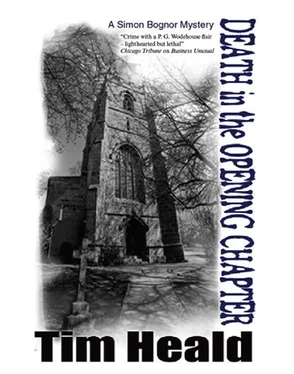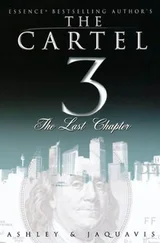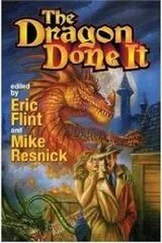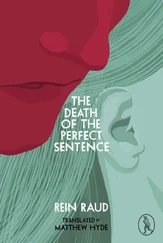Tim Heald - Death in the opening chapter
Здесь есть возможность читать онлайн «Tim Heald - Death in the opening chapter» весь текст электронной книги совершенно бесплатно (целиком полную версию без сокращений). В некоторых случаях можно слушать аудио, скачать через торрент в формате fb2 и присутствует краткое содержание. Жанр: Криминальный детектив, на английском языке. Описание произведения, (предисловие) а так же отзывы посетителей доступны на портале библиотеки ЛибКат.
- Название:Death in the opening chapter
- Автор:
- Жанр:
- Год:неизвестен
- ISBN:нет данных
- Рейтинг книги:5 / 5. Голосов: 1
-
Избранное:Добавить в избранное
- Отзывы:
-
Ваша оценка:
- 100
- 1
- 2
- 3
- 4
- 5
Death in the opening chapter: краткое содержание, описание и аннотация
Предлагаем к чтению аннотацию, описание, краткое содержание или предисловие (зависит от того, что написал сам автор книги «Death in the opening chapter»). Если вы не нашли необходимую информацию о книге — напишите в комментариях, мы постараемся отыскать её.
Death in the opening chapter — читать онлайн бесплатно полную книгу (весь текст) целиком
Ниже представлен текст книги, разбитый по страницам. Система сохранения места последней прочитанной страницы, позволяет с удобством читать онлайн бесплатно книгу «Death in the opening chapter», без необходимости каждый раз заново искать на чём Вы остановились. Поставьте закладку, и сможете в любой момент перейти на страницу, на которой закончили чтение.
Интервал:
Закладка:
‘But they are bad. Man U would have them for breakfast any day of the week.’
They were getting into irrelevant waters, the land of the red herring. Bognor tried bringing them back to something approaching Earth.
‘Are we saying that the vicar was murdered because he was no good? A sort of ecclesiastical equivalent of a team that lurches between the lower divisions of the football league and something sponsored by a cement company.’
‘No,’ said Bognor, thoughtfully. ‘The Reverend Sebastian sounds like a man with few friends, but, by the same token, he probably had few enemies. He was too Laodicean to aspire to either. Difficult to be enthusiastic about someone lukewarm.’
‘I wouldn’t describe Sebastian as “lukewarm”,’ said Sir Branwell. ‘Useless, yes; lukewarm, no. He had some strong opinions. Women priests, Muslim fundamentalists. Strong, very.’
‘Pro or anti?’
‘Pro. Sebastian was teetering on the brink of being radical. Never over the edge, being one of life’s teeterers. He was always on, or near a brink, but never quite over.’
Bognor smiled. ‘You didn’t like him.’
His old chum smiled back. ‘I don’t think liking really came into it. That was the point about Sebby. You didn’t like him or dislike him. He just was, if you see what I mean.’
‘High church?’
‘High on the whole,’ said Sir Branwell. ‘Keen on smells and bells. Latin. But a soft spot for that American-Kiwi monk, Merton, which puts him on the left, I would think. Difficult to pigeonhole Sebastian, which was one of his few attractive features. You never knew what he was going to think about anything. Come to think of it, I don’t suppose he had much of a clue himself.’
‘Bit of a ditherer as well as a teeterer,’ said Bognor.
‘Uncertainty was his middle name,’ said the squire. ‘Except when he was certain of something. That’s one thing you can say for him. Well, could say for him, when he was, well, you know, alive. He was assailed by doubt. I rather approve of doubt.’
‘Up to a point,’ said Bognor, repeating an Apocrypha adage. They both recognized it and grinned.
‘So, in an age of certainty he was a prey to doubt,’ said Bognor, ‘and in an age when popularity was a mark of merit, he was prepared to be unpopular. Sounds rather a good thing.’
‘No, not at all,’ said Sir Branwell. ‘That’s far too positive. He was never that black and white.’
‘No,’ said Bognor. He could see that the vicar had been a tiresome priest, if seldom turbulent. Turbulence was obviously not in his nature, which was a pity as far as Sir Simon was concerned, as he had a definite weak spot for turbulence of almost every description. Perhaps the vicar had, as it were, kicked his own bucket; taken his own life; died by his own. Yet suicide, despite a popular view that it constituted cowardice – not a view to which Bognor ever ascribed – required a certainty, not to mention a moral courage, which was not part of the former padre’s make-up. Bognor was not at all sure what had happened in the night, but he was pretty sure it wasn’t suicide. Something had clearly gone bump but the drama had been inflicted by an outside agency. Of that he was already certain. He felt it in his water, which was, on the whole, and on the evidence of past history, as good an indicator as any.
He said so out loud, seeking confirmation, and was glad to receive it.
‘I don’t think he killed himself,’ he said. ‘It doesn’t sound in character.’
Sir Branwell shook his head sadly. ‘I think you’re right,’ he said. ‘For all kinds of reason. Nevertheless, I find it hard to believe that anyone would have done such a thing on purpose. It seems to me much more like a hideous mistake.’ Sir Branwell was a cock-up man rather than a conspiracy theorist. He held to the belief that when ‘Crusoe’, the great Somerset fast bowler and scribe killed himself, he overdosed by mistake. Chaps made mistakes. Name of the game. Fact of life. Could be awkward, but most real awkwardness was the product of confusion and inertia, not malice aforethought.
‘Hideous mistake, eh?’
Bognor laughed mirthlessly, having been taught, like his host, that cliches were full of dangerous assumptions and prejudices.
‘For once,’ he said, ‘the mistake really would have been hideous. Not often you can say that, eh?’
FOUR
The chief constable was, as usual, brisk and efficient.
Actually this was not true. The chief constable was the reason the boys were in the library, and it was into the library that the chief constable was ushered by Brandon the butler. Brandon did for the Fludds upstairs, while Mrs Brandon toiled away below stairs, behind the baize and below the salt. She was the invisible half, while her husband was all mouth and striped trouser. He buttled; she cooked; he was the outward sign that all was well; she the inner strength that ensured it really, almost, was. Time was when the manor would have supported a staff of several, if not of thousands. Now it was just the two of them: Harry and Peggoty.
‘Black, two sugars,’ said the chief constable. He shot with Sir Branwell; his wife played bridge with Sir Branwell’s wife. They were both ‘county’.
The chief constable, whose name was Jones, came from elsewhere but was ‘county’ by rank and assimilation. He was also living proof of the fact that in modern Britain, still, there were two sides to almost every question: the visible and the invisible. With the post-Murdoch decline in the concept of the Fourth Estate and of the press as a tribune of the people, the invisible side of British life had become more significant and the visible more perfunctory. Nevertheless, the distinction was maintained. There was a way in which things were seen to be done and there was a way in which things were actually done. This distinction was further complicated by the twin and, on the whole, contrary distinctions between ‘conspiracy’ and ‘cock-up’.
It was widely believed that these two theories stood for an ‘either or’; that you either had a conspiracy or you had a cock-up, and that this explained everything. However, Bognor’s life experience, contrary to that of Sir Branwell and others, suggested that the two ideas were not alternatives and that the British had an unusual, possibly unique, propensity for combining the two. This meant that life was either a conspiratorial cock-up or a cocked-up conspiracy – probably both. The British had an almost unerring gift for getting things hopelessly wrong. They also possessed an apparently limitless capacity for gossip and plotting, as in Gunpowder and Popish. The Gunpowder Plot was a brilliant example of a conspiratorial cock-up and a cocked-up conspiracy. As far as Bognor was concerned, Guy, or Guido Fawkes, was the ultimate Englishman. He wondered if he was an ancestor of Sebastian, the writer, but it was an idle and irrelevant wonder and not one worth worrying about. The Fawkes of gunpowder, treason and plot – the man for whom one still paid a penny before setting fire to him every November 5th – may not have been the greatest Englishman ever, but he was the most English.
Chief Constable Jones had arrived to explain the invisible solution to the questions posed by the death of the Reverend Sebastian Fludd. It was obviously suicide. He had assigned one of his most trusted lieutenants, a detective chief inspector, no less, to the case and this man was adept at going through the necessary motions with absolute conviction. He would examine the scene of crime and the body – or rather he would cause minions to do so, for even in make-believe DCIs did not get their hands dirty – and then he would report. He would issue dozens of reports, all beautifully typed. This would be done by other minions, for chief constables did not type. In this case, typing was a skill that the chief constable had not seen fit to acquire. He was a good shot though; a skill that he had acquired relatively late in life, through the offices of his ambitious wife who recognized that shooting was still, in the county, a skill essential for social advancement.
Читать дальшеИнтервал:
Закладка:
Похожие книги на «Death in the opening chapter»
Представляем Вашему вниманию похожие книги на «Death in the opening chapter» списком для выбора. Мы отобрали схожую по названию и смыслу литературу в надежде предоставить читателям больше вариантов отыскать новые, интересные, ещё непрочитанные произведения.
Обсуждение, отзывы о книге «Death in the opening chapter» и просто собственные мнения читателей. Оставьте ваши комментарии, напишите, что Вы думаете о произведении, его смысле или главных героях. Укажите что конкретно понравилось, а что нет, и почему Вы так считаете.












